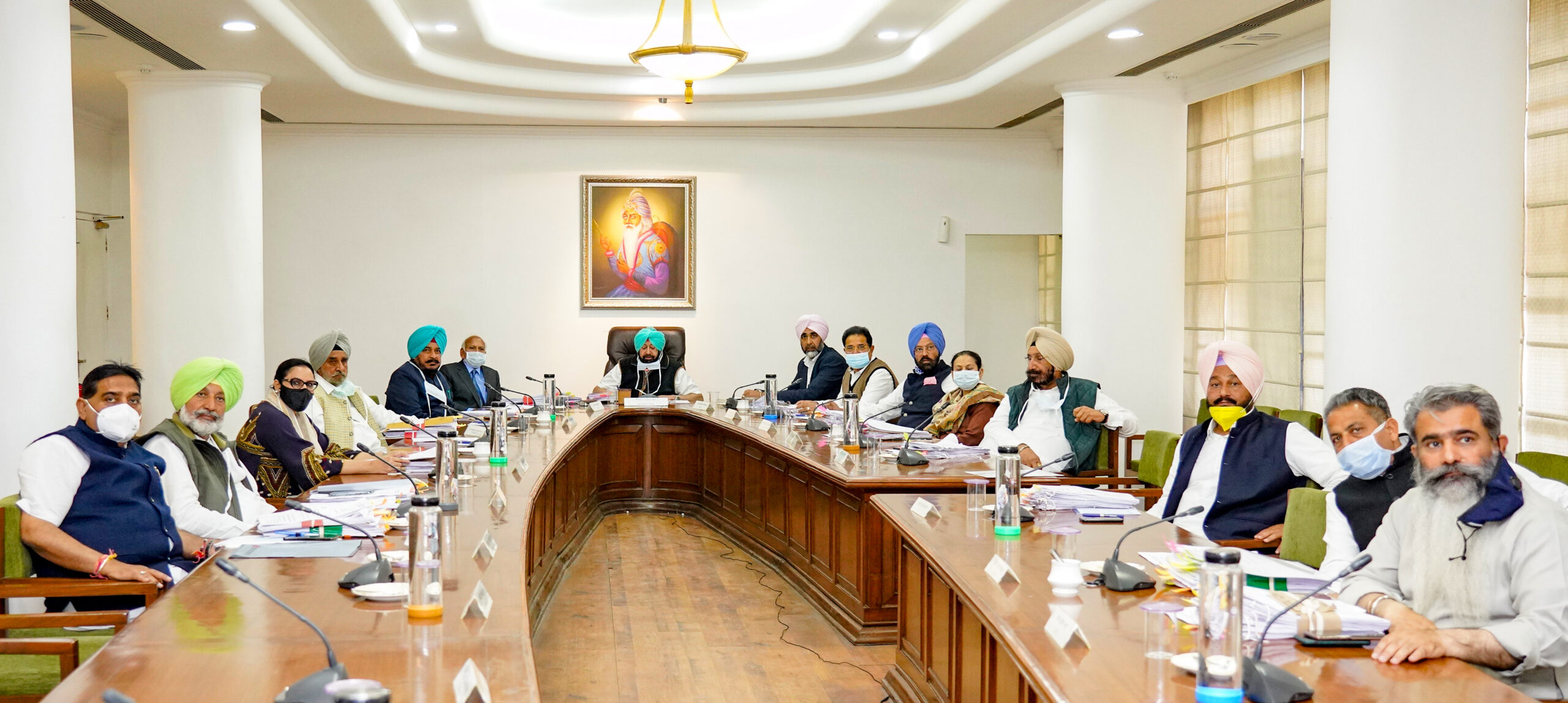Chandigarh, March 1:
In a bid to bring far more efficiency, and streamline the functioning of Excise & Taxation, Town & Country Planning, Medical Education & Research and Rural Development and Panchayats, the Punjab Cabinet on Monday approved the restructuring plans of these four departments.
With an objective to achieve more revenue collections, the Cabinet approved creation of 110 new posts in the Taxation Commissionerate, and 59 new posts in Excise Commissionerate of the Excise & Taxation department.
Notably, the implementation of GST has brought services under the ambit of department, and added a new feature of Audit, which involves examination of records, returns and other documents maintained by GST registered person. It also ensures correctness of turnover declared, taxes paid, refund claimed, input tax credit availed and assesses other compliances under GST Act, which are to be checked by an authorized expert. Resultantly, the number of dealers registered has also increased from 2.50 lakh to 3.55 lakh, thus increasing the work load and therefore a stronger personnel base is required to be set up in Taxation Commissionerate to carry out these additional functions effectively.
Likewise, excise revenue and administration is a significant part of the Excise & Taxation Department. The Excise revenue collections in the State has increased from 435.79 crores in the year 1990-91 to Rs. 5794 Crores in the year 2020-21 (Projected figures). It is likely to go up to Rs. 7000 crore in the year 2021-22. In the recent years, an unprecedented increase in the Excise related activities have been observed in the State. The formulation of Excise Policy and its implementation is a time consuming and full time exercise.
It may be recalled that the Excise and Taxation department was bifurcated into the two Commissionerates i.e Taxation commissionerate and Excise commissionerate on October 8, 2018. However, the staff and officers deployed on the Excise side in the Excise Commissionerate is skeletal. After bifurcation of the Excise and Taxation department into the Excise Commissionerate and the Taxation Commissionerate, the roles and responsibilities of the officers have increased. Greater concentration efforts and dedication on their parts is required to achieve more revenue.
The Cabinet also gave a go-ahead to the restructuring of the Directorate of Town & Country Planning. Now, there will be a separate position of Director, Town and Country Planning, who will be the in-charge of the Planning alongwith Licensing, Regulatory and Enforcement functions in the State, which was earlier under the Chief Administrators. Likewise, Director, Town and Country Planning would be supported by a pyramid of 2-Country and Town Planner (CTPs), 13 Senior Town Planner (STPs), 37 Deputy Town Planner (DTPs), 84 Assitant Town Planner (ATPs) for Planning, Licensing, Regulatory and Enforcement work. There would be district level offices in all districts. The Cabinet also gave approval to replace 101 non-essential posts with 175 new and more relevant posts in the department besides filling up the newly created and vacant posts in the department which will provide jobs to youth.
With the restructuring of Government Medical Colleges of Patiala and Amritsar, along with attached hospitals besides Government Nursing Colleges and Government Dental Colleges of Patiala and Amritsar and attached Hospitals and Government Ayurvedic College/Hospital/Pharmacy, Patiala, as many as 1154 new posts of various categories for recruitment have been created while 606 posts have been surrender/abolished under the restructuring. Notably, the Directorate of Research and Medical Education, Punjab was established in 1973. With changing times, the Department has been working to restructure itself and to reorganize in a manner that reflects present day requirements.
In a bid to further streamline the functioning of Rural Development and Panchayats Department, the Cabinet also accorded approval for its restructuring and recruitment plan against vacant posts. This step would be instrumental in ensuring smooth and effective implementation of government policies and schemes in the state.
Discussions
Discussions
